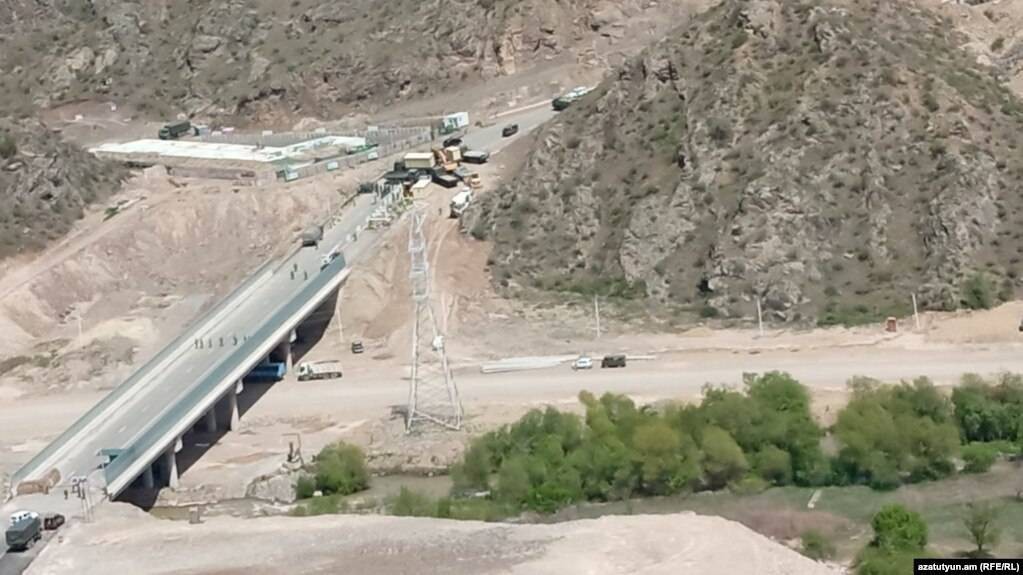საერთო ცხელი ხაზი +995 577 07 05 63


The normalization of relations between Armenia and Azerbaijan and the peace in the region is of the utmost importance for the civil society of Georgia. We are concerned about the renewed tensions triggered by the closure of the Lachin Corridor, connecting Nagorno-Karabakh and Armenia, in December 2022. On April 23, 2023, Azerbaijan declared the setting up of a checkpoint at the entrance to the Lachin Corridor.
120,000 people living in Nagorno-Karabakh have been facing severe socio-economic challenges and humanitarian crises for almost 7 months. Their movements in all directions have been restricted, leaving them completely isolated. On July 25, the International Committee of the Red Cross, which previously played a vital role in providing humanitarian aid to the region, declared that it is handicapped to provide the humanitarian aid to the local population despite numerous attempts. Additionally, it has been approximately 1 month since the Russian peacekeeping forces in the area ceased supplying essential resources such as food and medicine due to events that unfolded on June 15.
Numerous organizations and media outlets report a severe shortage of food, medical supplies, and essential goods in the area. Amnesty International reports a notable rise in health issues like immunodeficiency, anemia, thyroid disease, and worsening diabetes among women and children, primarily attributed to the lack of food. The situation is particularly critical for the elderly, persons with disabilities, and those with chronic illnesses, as their access to healthcare services is severely limited or, in some cases, entirely cut off. Within the blocked region, the circumstances have become even more complex for women, both from a legal and humanitarian perspective. Approximately 27,000 students in Nagorno-Karabakh are deprived of their fundamental right to education, as educational institutions struggle to function adequately due to limited heating and electricity. As a result of movement restrictions, approximately 1,100 people in Nagorno-Karabakh are unable to return to their homes, including 270 children who have been separated from their parents.
On December 28, 2022, Armenia submitted an interstate application to the International Court of Justice, seeking temporary measures related to the restriction of freedom of movement in the Lachine Corridor. In response, on February 22, 2023, the Court ordered Azerbaijan to ensure unhindered movement of cargo, people, and transportation in both directions within the Lachine corridor. The Court's decision was based on the recognition that provisional measures are essential to safeguard the rights guaranteed by the International Convention on the Elimination of All Forms of Racial Discrimination (CERD) for the ethnic Armenian population. These rights include freedom of movement within and outside the country, access to medical and social services, and protection from discrimination based on ethnicity.
The Court emphasized that the blockade of the Lachine Corridor poses an immediate threat to the exercise of these rights, hence, Azerbaijan is obliged to take all necessary actions to remove barriers to movement. Furthermore, on December 22, 2022, the European Court of Human Rights also ruled under Article 39 of the Rules of Procedure, compelling Azerbaijan to implement all essential measures to ensure the movement of individuals with limited access to vital services, including crucial healthcare facilities for the sick.
On July 26, 2023, the European Union assessed the humanitarian crisis in Nagorno-Karabakh as critical.
We, the civil society organizations of Georgia, extend our solidarity to the population affected by the conflict on all sides. Over the course of 30 years of unresolved conflicts, the civilian population has endured profound and irreversible hardships. The toll of armed confrontations and protracted conflict has resulted in loss of lives, compromised health, daily insecurity, and a jeopardized future. As advocates for peace and human rights, we emphasize the urgent need of safeguarding and supporting the well-being of civilians. We believe it is crucial for the parties to the conflict and international community to prioritize humanitarian concerns and human rights protection throughout the negotiation process. We are convinced that the protection of conflict affected people shall be a precondition for the confidence building and normalization of relations between parties.
In the current geo-political crisis, all three countries of the South Caucasus share the same interest: to create new examples of peaceful coexistence and new precedents of trust, mutual assistance and cooperation, that will ensure peace, development and prosperity of all the people of Armenia, Azerbaijan and Georgia.
Considering the above:
All sides should exercise restraint and avoid any actions that could escalate the situation or worsen already fragile conditions for the negotiations. It is crucial to safeguard the dignity, rights, and security of those impacted by the conflicts.
In the present circumstances, the Azerbaijani authorities bear a particular responsibility in ensuring the safety and rights of the Armenian population residing in Nagorno-Karabakh. How Azerbaijan deals with this challenge will significantly impact inter-ethnic relations between the peoples of the South Caucasus and the peace the region.
Signatory organizations:
The website accessibility instruction